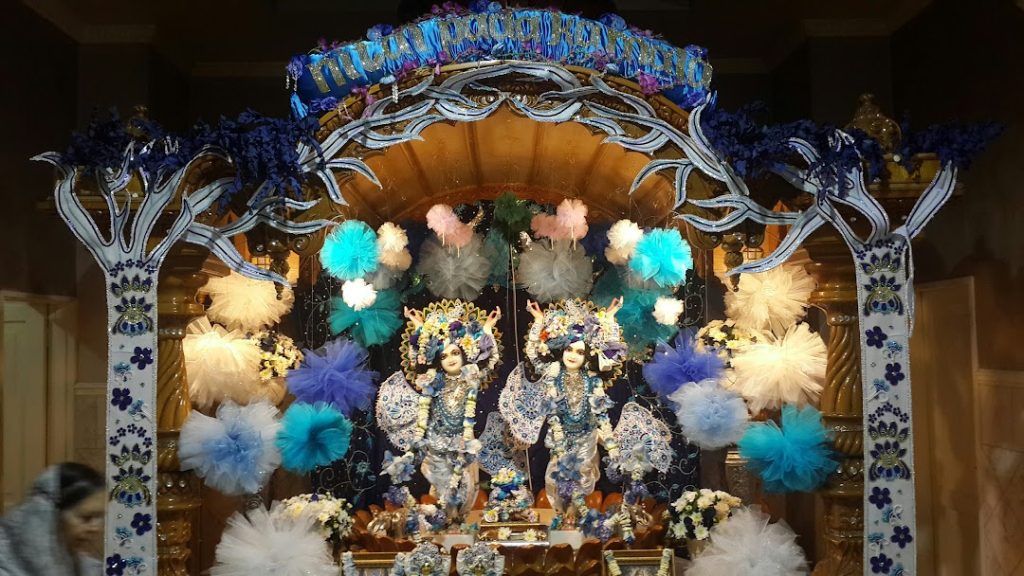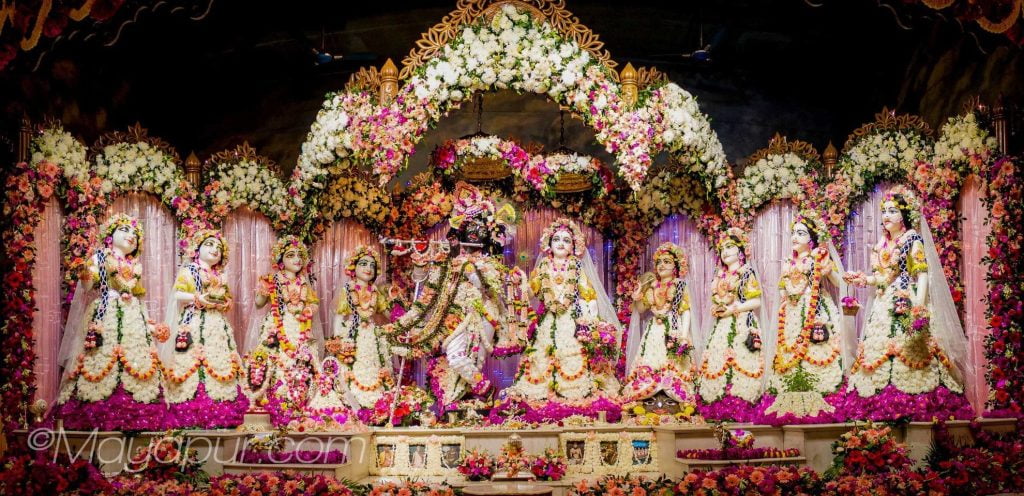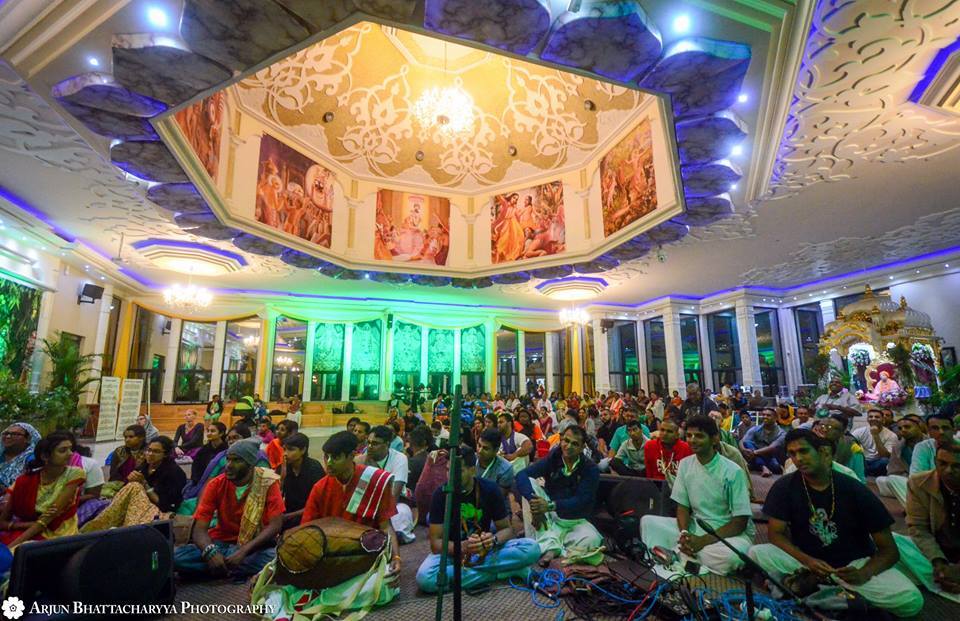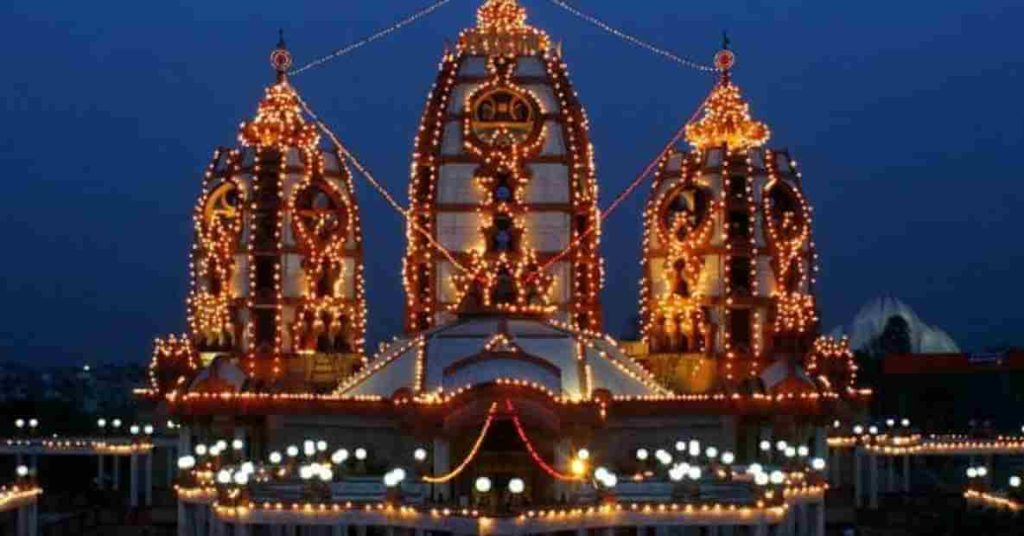Eco-Friendly Janmashtami Celebrations: Sustainable Practices for ISKCON Communities
By Atma Tattva Das, ISKCON News Staff Writer | Aug 14, 2024

As environmental challenges continue to escalate, integrating sustainable practices into every aspect of life has become crucial. Religious festivals, often marked by large gatherings and elaborate preparations, provide an opportunity to promote environmental awareness. The Hare Krishna community, guided by Lord Krishna’s teachings, is uniquely positioned to lead by example. Krishna, often depicted as the protector of nature, embodies the principles of environmental stewardship. This connection between spirituality and sustainability is particularly relevant during Janmashtami, the celebration of Krishna’s appearance in this world.
In a recent interview with ISKCON News, Devakinandan Das, an experienced environmental scientist and Hare Krishna devotee, emphasized the importance of eco-friendly Janmashtami celebrations. With over 25 years of experience in the field, he specializes in environmental justice, urban risks, and climate adaptation. Devakinandan shared insights on how Krishna-conscious communities could honor the environment and their spiritual values during Janmashtami.

Devakinandan Das.
Reimagining Festival Decorations
Decorations are central to Janmashtami, but traditional options often involve non-biodegradable materials like plastics. Devakinandan advocates for the use of natural materials which are sustainable and rooted in Vedic traditions. “The use of natural materials like clay, bamboo, wood, and leaves is much more sustainable and eco-friendly,” he explained. According to him, these materials had been historically used and could replace synthetic items without losing the cultural essence of the festival.
He also encouraged collective efforts to create handmade decorations. “This can include using items like leaves, flowers, wood, and natural fabric banners,” Devakinandan suggested. He believes this practice not only reduces environmental impact but also fosters community and creativity. Making eco-friendly decorations for our festivals is also a great way to get our children and youth involved in service to Krishna during this auspicious time,” he added.
Devakinandan particularly emphasized involving children and youth in these initiatives. “Engaging younger devotees in creating eco-friendly decorations can be both educational and enjoyable,” he noted. He suggested that workshops, where children and youth could learn to craft decorations from natural materials, would not only make the festival preparations more inclusive but also instill a deeper appreciation for sustainability.

Vrindavan Janmashtami.
Sustainable Traditional Attire
Traditional attire is an essential part of Janmashtami, but its environmental impact is often overlooked. Devakinandan recommended using natural fabrics like cotton, silk, wool, and linen, which are biodegradable and have a lower environmental impact than synthetic fibers. “Promoting handmade attire supports artisans, weavers, and craftspeople,” he added, highlighting the cultural and economic benefits.
He also suggested sustainable traditional attire that aligns with Janmashtami’s cultural essence. “Devotees can opt for dhotis and saris made from organic cotton or handwoven silk, which honor our Vaishnava traditions while minimizing environmental harm,” he said. According to him, reusing garments from previous festivals also contributes to sustainability while preserving their cultural significance.

Lenasia Janmashtami.
Sustainable Food Practices
Food is central to Janmashtami celebrations, and its sourcing and preparation have significant environmental implications. Devakinandan emphasized the benefits of using organic and locally sourced ingredients. “Organic food is grown without synthetic pesticides and fertilizers, offering higher nutritional value,” he noted. This practice, he believes, supports the health of devotees and promotes sustainable agriculture.
Purchasing locally sourced ingredients also has broader social and economic benefits. “Buying locally supports our farmers and boosts the local economy,” Devakinandan explained. In a country like South Africa, where unemployment is high, this practice, he noted, could create jobs and stimulate economic growth.
Devakinandan offered practical advice on estimating food quantities to minimize food waste. “Communities can analyze previous attendance and consumption patterns to better estimate the amount of food needed,” he suggested. He believes that tools like portion calculators and meal planners could ensure just the right amount of food is prepared, avoiding both waste and shortages.

Mayapur Janmashtami.
Efficient Waste Management
Managing food waste is critical for sustainable festival celebrations. Devakinandan suggested several strategies to minimize waste during Janmashtami. “Estimating the amount of food needed based on previous festival attendance can help avoid over-preparation,” he advised. He also stressed the importance of waste separation with clearly labeled bins for organic waste, recyclables, and general waste.
One innovative technique he mentioned was vermicomposting, which uses worms to break down organic waste into high-quality compost. “This compost can then enrich the soil for future harvests,” he explained. These practices, he believes, not only reduce waste but also contribute to a circular food system that benefits the environment and community.

Phoenix Durban Janmashtami.
Sustainable Lighting Solutions
Festive lighting is another area where sustainability could be promoted. Devakinandan suggested several strategies to reduce energy consumption during Janmashtami. “Using LED lights instead of traditional incandescent bulbs is a simple yet effective way to cut down on power usage,” he said. According to him, LED lights consume less energy and have a longer lifespan, making them an eco-friendly choice.
For those looking to go further, Devakinandan recommended combining solar panels with LED lights. “This allows for efficient solar energy use in lighting,” he explained. He believes that going off-grid would reduce reliance on the electrical grid and provide reliable lighting during the festival.

ISKCON Delhi Janmashtami.
Promoting Eco-Friendly Transport
Transportation during festivals can significantly contribute to greenhouse gas emissions. Devakinandan acknowledged the challenges posed by South Africa’s inefficient public transport system but encouraged devotees to carpool when possible. “Sharing a ride can reduce the number of vehicles on the road, decreasing overall emissions and fuel consumption,” he advised.

Radha Radhannath Durban Janmashtami.
A Call to Action
Devakinandan’s insights stress the importance of integrating sustainable practices into Janmashtami celebrations worldwide. By making conscious choices in decorations, food sourcing, waste management, lighting, clothing, and transport, Krishna-conscious communities can honor the environment while celebrating this auspicious occasion. “Celebrating Janmashtami in an eco-friendly manner aligns with our spiritual values, emphasizing respect and care for the environment as a form of devotion,” he concluded.
To learn more creative eco-friendly ideas for temples and individuals, discover sustainability resources, explore eco-theology, and more, please visit the ISKCON Environmental Initiative website and follow them on Facebook.
















